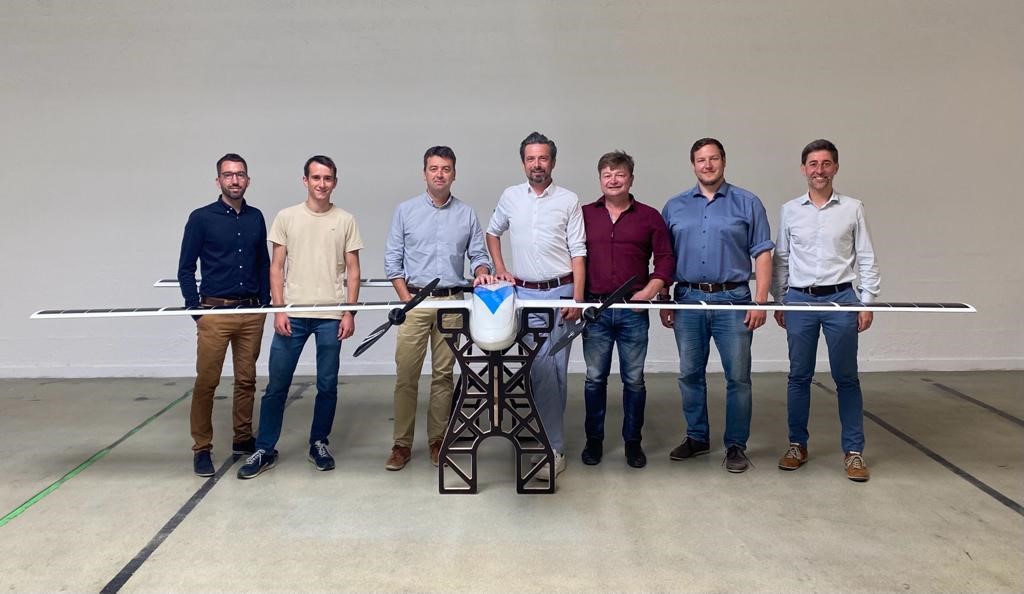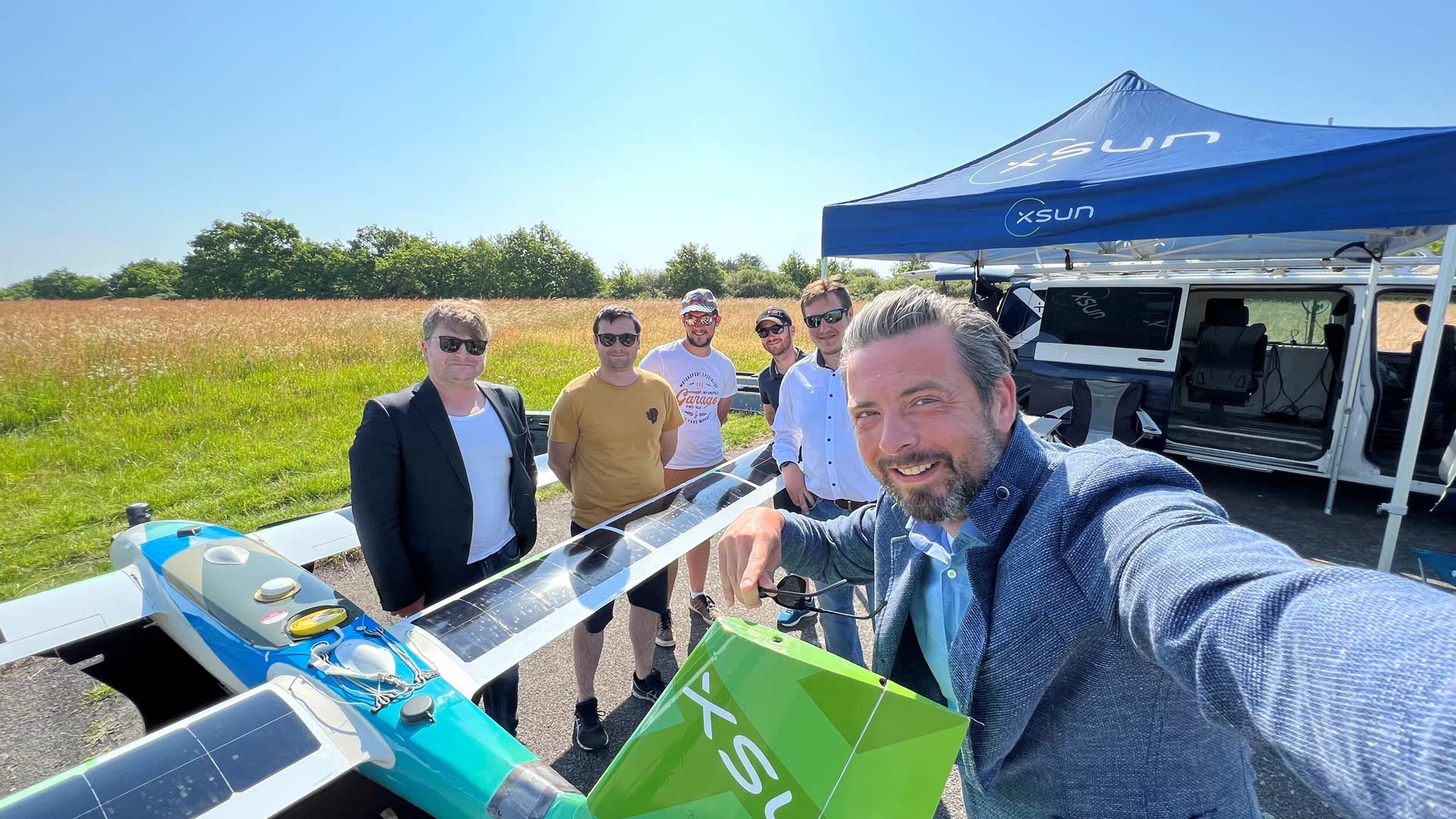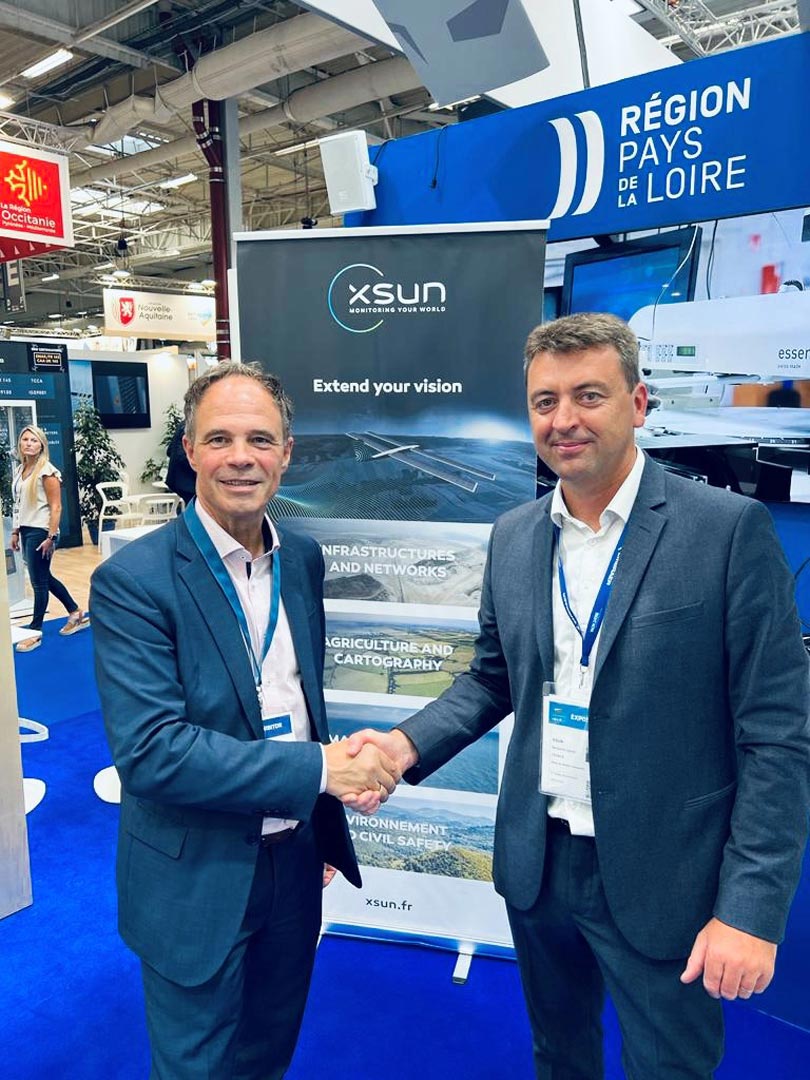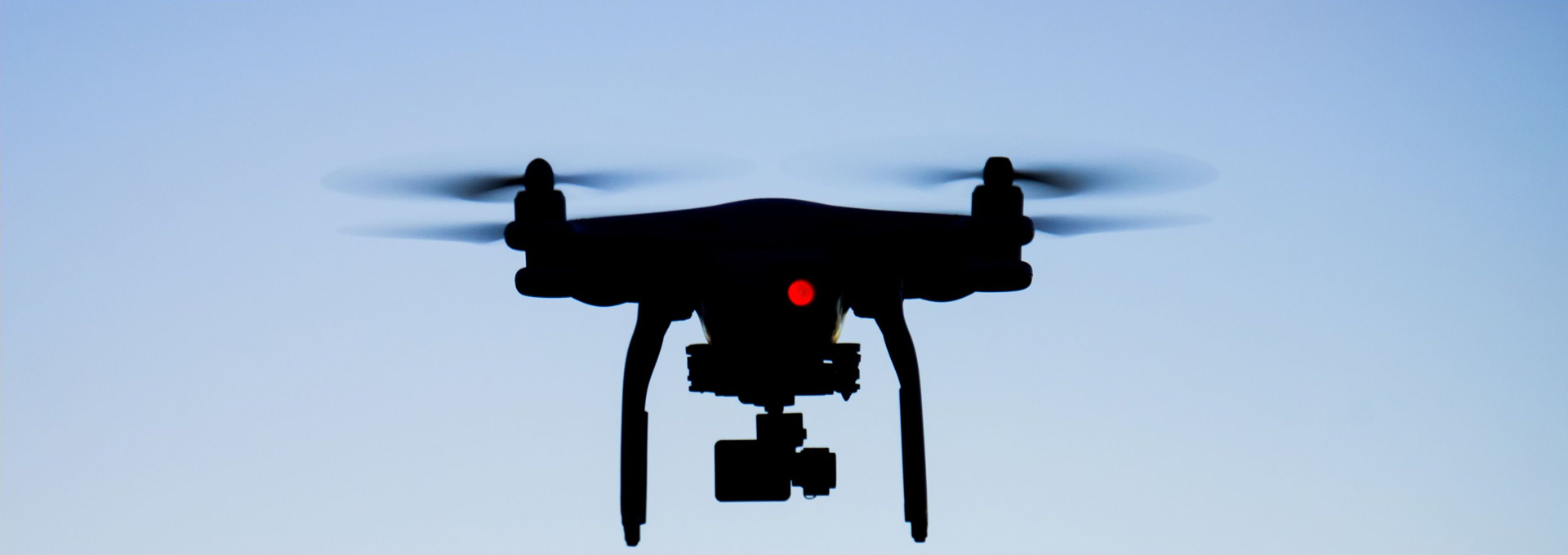Drone manufacturer XSun and DLR GfR sign two-year cooperation agreement
28.06.2023
Drone manufacturer XSun and DLR GfR sign two-year cooperation agreement
We and the German / French drone manufacturer XSun enter into a cooperation agreement for 2 years to launch the NAVCAST navigation data correction service. The cooperation is for innovation and improvement of drone operation as well as for safety in navigation and communication.
We are pleased to announce that we have signed a cooperation agreement with the drone manufacturer XSun on 28.06.2023. XSun develops and operates solar-powered electric drones for various applications, e.g. in the fields of cartography, agriculture, search & rescue or environmental protection. The two-year collaboration will use NAVCAST to demonstrate the benefits of high-accuracy positioning on drone operations and safety in navigation and communications. With the exceptional solar-powered performance SolarXOne drone and XSun’s commitment to sustainable aviation, we have found the perfect partner for a promising collaboration to integrate innovative space-based applications such as NAVCAST into the commercial market.

f.l.t.r.: Fabian Degre, Ladislas Severac, Benjamin David, Jan Gebhardt, Waldemar Krebs, Bertram Zöllner, Patrick Raballand
Both companies originally met at the special EDMO airport in Oberpfaffenhofen, where they were conducting tests as part of their projects. Jan Gebhardt, the project manager of the cooperation with XSun, remembers that day fondly: “We met these ingenious guys from XSun by chance at Oberpfaffenhofen Airport, where they were also conducting test flights with their drones, just like we were. After we had exchanged a bit about our backgrounds, we quickly realized that due to the high synergy potential, both sides would benefit massively from a cooperation. So, thought, done!”

Jan Gebhardt with XSun drone and employees
Through this collaboration, NAVCAST will work together to improve the feasibility, safety and economics of robust and highly accurate flights without the need for additional ground equipment or infrastructure. In doing so, NAVCAST is expected to deliver improved positioning solutions for drone positioning and application data georeferencing.
Future plans include application-specific integration of NAVCAST in the field of unmanned aerial mobility to ensure the safe and reliable execution of missions with drones and integration into existing airspace.
In addition, the meeting at the Paris Air Show allowed the cooperation agreement to be reaffirmed and further steps of the cooperation to be discussed.

f.l.t.r.: Walter Päffgen, Benjamin David
NAVCAST
Jointly developed by Spaceopal, Telespazio and us, NAVCAST is a precise point positioning (PPP) service that supports automated applications such as XSun drone flights with highly accurate and reliable navigation solutions. NAVCAST real-time orbit and clock corrections as well as code and phase bias estimates are used to eliminate Galileo and GPS system errors.
NAVCAST can be tailored to meet the exact needs of any application – airborne or ground-based – that requires high position accuracy (e.g., for surveillance, survey, or delivery purposes). Apart from a GNSS multi-constellation receiver capable of using NAVCAST correction data streams for PPP computation, NAVCAST requires no additional user equipment -or infrastructure.
About DLR GfR:
Founded in 2008 as a subsidiary of the German Aerospace Center, DLR GfR mbH is responsible for the management of Europe’s largest space constellation, the European satellite navigation system GALILEO, at the Galileo Control Center (GCC-D) in Oberpfaffenhofen on behalf of the European Commission.
Thanks to the technical infrastructure implemented by DLR GfR, the company guarantees a service availability of 99.99 percent. DLR GfR’s constellation operations services at GCC-D include 24/7 routine operation and maintenance of the 26 Galileo satellites and associated ground segment infrastructure. From GCC-D, the operation of the globally distributed Galileo infrastructure, both on the ground and in orbit, is organized across all mission phases. This includes mission planning and flight dynamics services, efficient team training and management, reliable configuration monitoring, and global service level tracking and monitoring.
With an international team of more than 240 experts from 24 nations, DLR GfR provides its customers with reliable and safe space services and steers the Galileo project into the future with foresight.
About XSun:
The XSun company consists of a group of highly qualified aerospace engineers with breakthrough ideas to contribute to a better future.
Their expertise in aircraft design, air navigation systems, radio and satellite communications enables them to build advanced autonomous unmanned aerial vehicles that can fly farther, quieter and safer in many areas.
XSun is on its way to becoming one of the leading companies in the solar drone industry. Their solar-powered drones are designed to operate fully autonomously without human intervention. The drone is designed with two wings to optimize aerodynamics and flight performance for long-distance and high-altitude flights.
About Spaceopal:
Spaceopal GmbH, based in Munich, Germany, is a joint venture founded in 2009 by the partners DLR Gesellschaft für Raumfahrtanwendungen (GfR) mbH and Telespazio, a 67/33% joint venture of Leonardo and Thales. Since November 2010, Spaceopal has been the prime contractor for the operation of Galileo, the European Union’s global satellite navigation system. With its core business, Spaceopal makes an important contribution to Europe’s performance in the field of global navigation satellite systems (GNSS).






